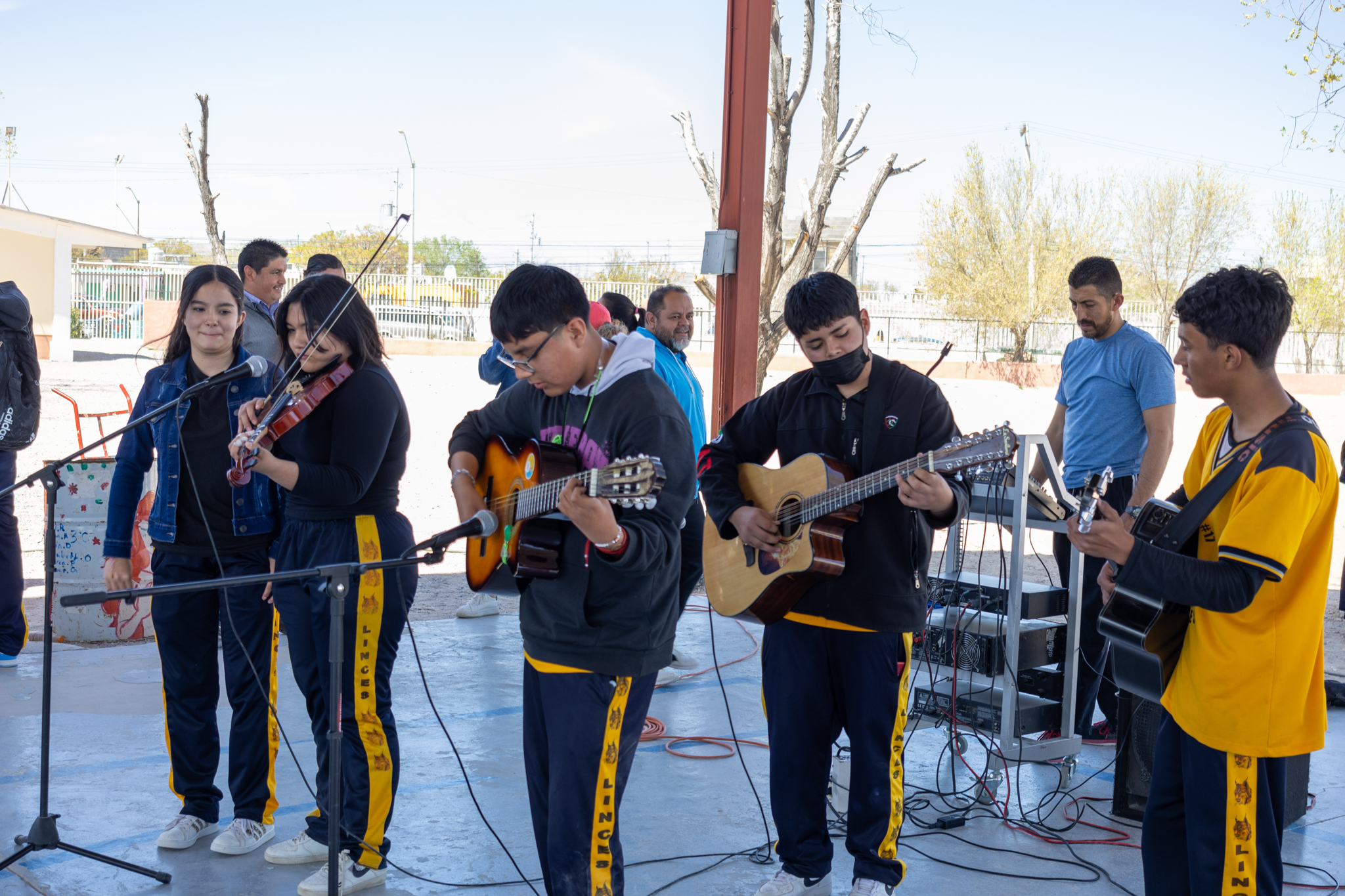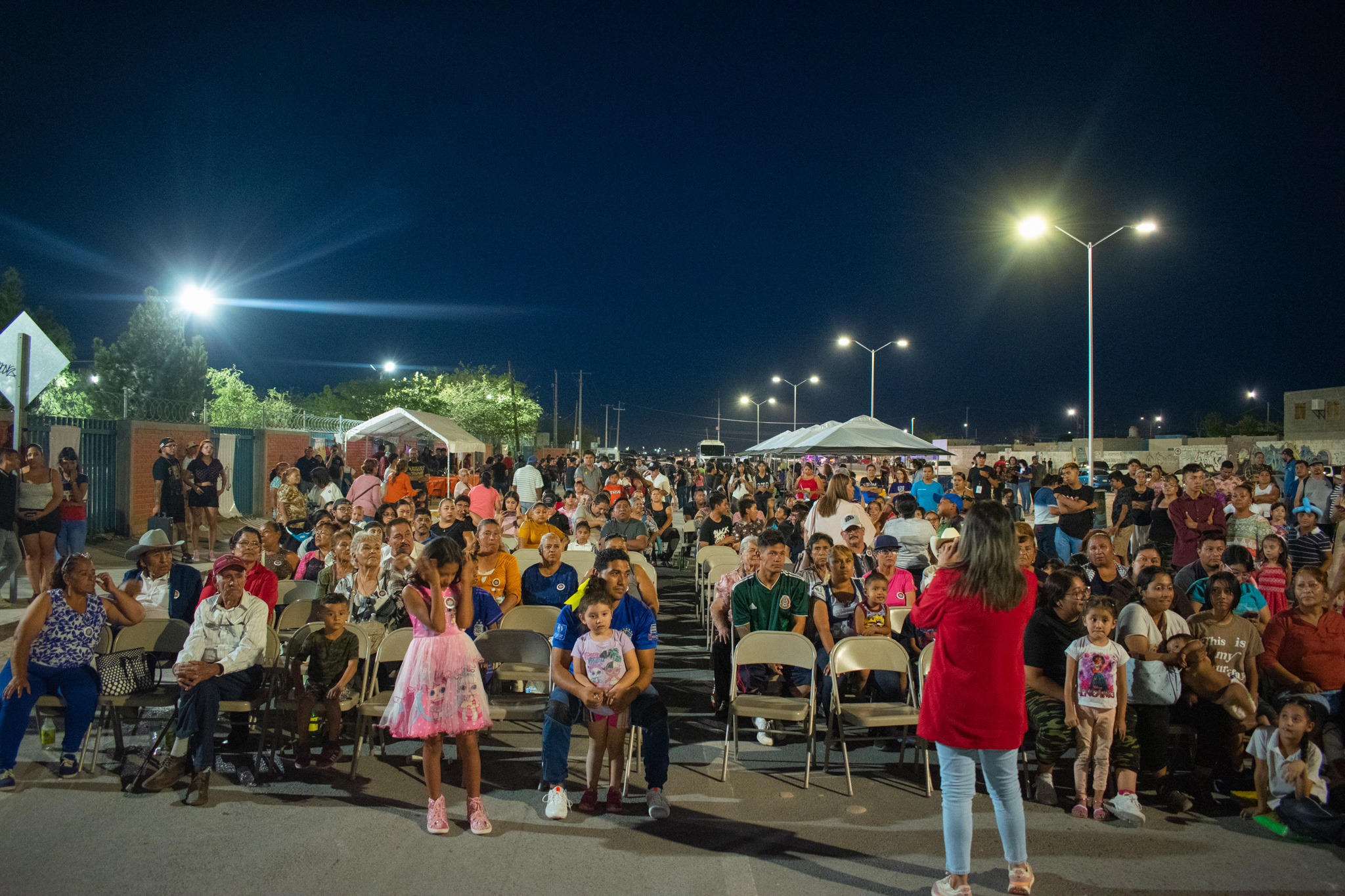
By Alejandro Martínez-Cabrera EL PASO TIMES
Things were looking bleak for Verónica Hernández Chavira a few weeks ago.
A 26-year-old unemployed college dropout, the Juárez resident wanted a job or to go back to school — but you need money to make money, she said, and she had none. Not even enough to pay for bus fare and look for work.
She spent her time playing soccer, reading and trying to find herself through her writing. Now, Hernández Chavira understood it was a mistake to drop out of college. But sometimes that’s not enough.
“You might have all the will in the world, but you need opportunities,” she said.
For her, that opportunity came in the form of an invitation to join A Ganar, a program launched last week in Juárez that uses soccer to help
MEXICO IN FOCUS
Analysis on news out of Mexico
youths get their lives back on track.
The program, which was created by U.S. nonprofit Partners of the Americas and now operates in 11 countries in Latin America and the Caribbean, aims to help young people return to school, find a job or start their own business.
It is one of the most recent efforts in Juárez to assist the growing ranks of at-risk youths known in Mexico as “Ni-nis,” a short form in Spanish that refers to young people who neither study nor work (“ni estudian ni trabajan”), who are considered vulnerable targets for drug organizations looking for recruits.
A Ganar — “to win” or “to earn” in Spanish — boasts having trained 4,000 youths in Ecuador, Brazil, Uruguay and Colombia, of whom 70 percent have gone back
Advertisement
to school or obtained formal employment within a year of graduating. In Juárez, the program started with 370 youths between 15 to 26, and organizers plan to increase the number of participants to 900.
The objective is to help young people learn and develop through sports, said Karen Yarza, director of the Community Foundation of the Northern Border, which is coordinating the program.
“It is not a program to learn how to play soccer. It’s a work-training program that uses soccer to teach values and applicable lessons,” she said.
For a lifelong sports enthusiast like Hernández Chavira, a youth empowerment program that revolves around soccer seemed like a perfect fit. But for her, the most appealing aspects were the job training and the opportunity to meet new people.
“If you go to school, you have to pay to study, so this is like a scholarship that they are giving us,” she said. “Besides, it’s not the same to study alone.”
The program in Juárez is being funded by the Inter-American Development Bank and the foundations of former President Bill Clinton and Mexican tycoon Carlos Slim. Program managers said they were not authorized to disclose the amount destined to the program, but a person familiar with the project said it was in excess of the $300,000 reported by Mexican media.
Programs like A Ganar might signal a change in the dynamics between nonprofits in Juárez and charitable foundations. While a large number of funds from foreign entities have come into Juárez in the past three years, many local organizations say it has been difficult to attract private grants and funds their way.
University of Texas at El Paso political science professor Tony Payan said that many private foundations still view organizations in Juárez with skepticism, but that is beginning to change as nonprofits continue to narrow their focus, gain credibility and become more accountable.
At the ground level, A Ganar is administered by partner organizations with experience working with youths, like the youth development nonprofit Casa Promoción Juvenil, which has various locations across some of the city’s most violent neighborhoods.
One such location is at the hilly Colonia Tarahumara near the Sierra Juárez, where Hernández Chavira attends. Last Thursday, federal police cordoned off a nearby block where two men in their mid-20s had been executed in plain daylight.
But inside Casa Promoción, decorated with images of cartoon characters and located next to a recreation area built by the federal government, a group of two dozen young people chatted while they made bracelets as part of the A Ganar program.
Program coordinator Aleysha Serrato said that some days, instructors teach young people about teamwork by having them play a match while holding hands and communicating without using words. On others, instructors lead group dynamics inside classrooms and have students discuss their experiences to further the lesson.
While they talked, some students spoke of relatives killed in the crossfire of somebody else’s gunbattle; others of drive-by shootings and executions they had witnessed.
But they also made plans. Some were already impatient to start the internships A Ganar promises. Part of the program is to channel students to education programs that will teach them marketable skills like gastronomy, machinery operations and computer repair, place them in internships, and teach them about entrepreneurship in case they want to start their own business.
A Ganar is also one of the many programs that have surfaced recently in an attempt to restore Juarez’s broken social fabric.
“I think the number of organizations grows day by day because people now want to participate, people want to help,” Serrato said.
While many people with the economic resources left the city, Payan said lower-middle class residents who stayed have formed new NGOs, which are community organizations and neighborhood watches.
Miguel Fernández, president of the city’s planning and redeveloping nonprofit Plan Estratégico de Juárez, said many programs and organizations have surfaced that deal with public safety, human rights and improving the quality of life in some of the most troubled neighborhoods, even though not enough have focused on poverty and health issues.
Payan believes the turning point that led to the formation of more civic organizations was the killing of 15 young students at Villas de Salvarcar early last year.
After the massacre, the federal government invested millions of dollars in a program named Todos Somos Juárez (We Are All Juárez). The program is meant to improve education, employment, health and recreation areas, but it has been criticized by opposition parties, activists and observers as failing to generate meaningful changes.
“For the first couple of years of the violence, the response was to hunker down, flee and wait it out,” Payan said. “People eventually realized this issue was something they were going to have to do something about.
“I think it’s a good thing that people are beginning to wake up to the fact that the government is not the answer.”
Alejandro Martínez-Cabrera may be reached at a.martinez@elpasotimes.com; 546-6129.
Fuente: El Paso Times
Liga: http://www.elpasotimes.com/news/ci_17967786




